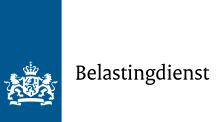Tax and Customs Administration
 | |
|
Belastingdienst building, Amsterdam | |
| Agency overview | |
|---|---|
| Jurisdiction | Netherlands |
| Motto | Leuker kunnen we het niet maken, wel makkelijker ("We cannot make it more fun, but we can make it easier") |
| Parent department | Ministry of Finance |
| Website |
belastingdienst |
The Tax and Customs Administration (Dutch: Belastingdienst) is the tax collection and customs (Dutch: Douane) service of the government of the Netherlands. Part of the Ministry of Finance. The Dutch tax authorities are charged with levying and collecting taxes in the Netherlands. The service is part of the Ministry of Finance. With the Dutch tax authorities, the Dutch tax authorities are therefore simply referred to as national tax authorities. The Dutch Tax Authorities were founded as an organization in 1805.
Taxation also includes Customs - which is charged with supervising the import, export and transit of goods through the Netherlands -, Toeslagen (and paying out income-related benefits for childcare, rent and health care) - charged with paying income-related allowances - and the Fiscal Intelligence and Investigation Service (FIOD). ). The Tax and Customs Administration itself falls under the political responsibility of the Minister of Finance and the State Secretary for Finance.
In addition to the government tax service, there are many other tax authorities, such as the municipal tax authorities that deal with the collection and collection of local taxes.[1]
Role in society
The Tax and Customs Administration is responsible for raising the income of the government. From this income, general provisions are paid, such as roads, schools and certain benefits (assistance, allowances, child allowance). Furthermore, many subsidies from, for example, theater companies and sports clubs are paid from the general funds.
Organization
The Tax and Customs Administration is part of the Ministry of Finance and consists of nine organizational units: Particulieren (Individuals), Midden- en kleinbedrijf (Small and medium-sized enterprises), Grote ondernemingen (Large companies), Centrale Administratieve processen (Central Administrative processes), Klantinteractie en Services (Customer interaction and Services), Informatievoorziening (Provision of information), Douane (Customs), FIOD (Fiscal intelligence and investigation service) and Toeslagen (Social security).[2]
The Director-General (DG) and the deputy DG (pDG) are in charge of the Tax and Customs Administration. The underlying services from the primary process are managed directly by the DG. The non-primary processes are largely controlled by the pDG.
References
- ↑ Belastingdienst. "Individuals". www.belastingdienst.nl. Retrieved 28 April 2018.
- ↑ "Directoraat-generaal Belastingdienst". Ministerie van Financiën. Rijksoverheid.nl. Retrieved April 28, 2018.